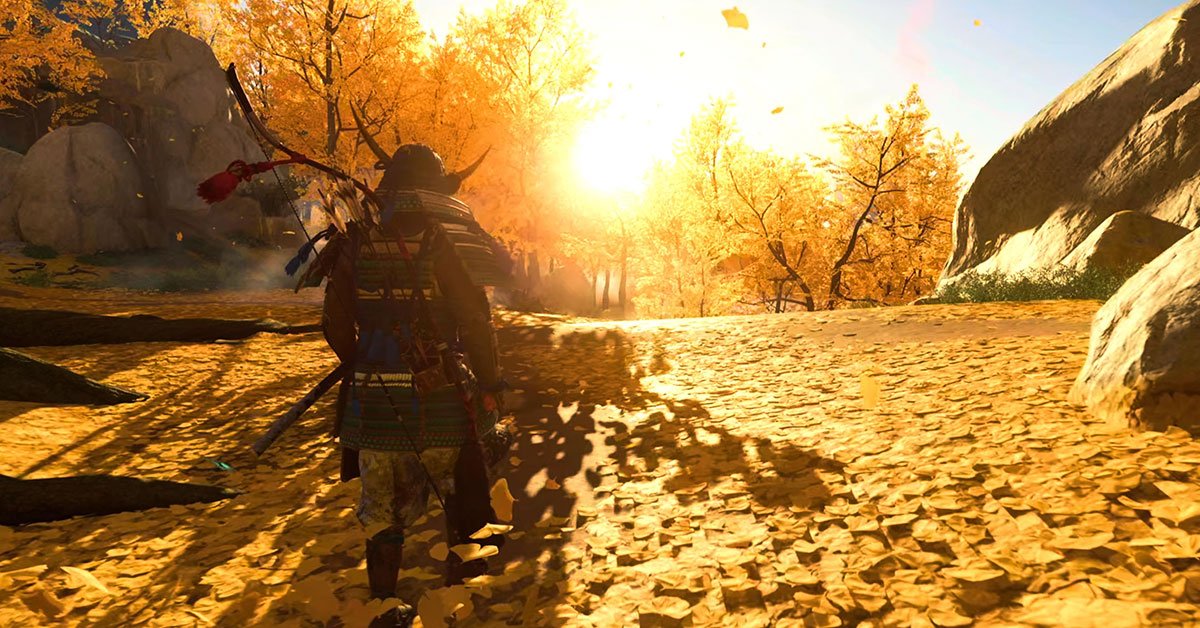Ghost of Yotei is set to release on PlayStation 5 in 2025, and I can’t wait. However, I don’t belong to the large crowd that considers its predecessor, Ghost of Tsushima, a masterpiece. If I had been running this blog back then, I probably would have given the game an 8 (which might not come as a surprise, as I tend to land there often).
Ghost of Tsushima presented a stunning open world, but in my view, its beauty wasn’t matched by enough substance. The world felt somewhat static, and I had a similar feeling about the protagonist, Jin Sakai. That said, I’m definitely looking forward to Ghost of Yotei, though there are a few things I’d like to see improved for the sequel to truly earn the title of a masterpiece.
A More Compelling Protagonist

This might not sit well with everyone (much like this entire article), but I found Jin Sakai about as charismatic as a potato. While his journey and character development were certainly interesting and well-executed by Sucker Punch, he just kind of…bored me, at times.
Admittedly, Jin’s humility and stoicism fit the culture and role expected of a samurai. Still, I hope that the new protagonist, Atsu, manages to hold my attention better. By placing her outside a group bound by strict rules and rituals, Sucker Punch can give her more freedom, allowing her to break the mold and push boundaries when needed.
More Varied Quests

Many open-world games stumble by offering an abundance of side quests, but then fail to make them truly interesting or diverse. One of the rare exceptions is The Witcher 3: Wild Hunt—no game has handled side quests as perfectly as CD Projekt Red’s creation (in my opinion, thát is a true masterpiece—sorry!).
In The Witcher 3, every side quest felt like a main quest. In fact, many of the stories told through these side quests were so well-developed that they could almost stand alone as full-fledged games. The storytelling was top-notch, and the missions themselves were varied and engaging.
Ghost of Tsushima showed potential with its side quests linked to specific characters. The personal “tales” of figures like Masako, Ishikawa, and Yuriko were a great concept. Having a longer series of quests with the same characters helps us grow attached to them, which in turn creates room for emotional impact.
Unfortunately, I didn’t often feel that emotional connection. Part of the issue was the presentation. The scenes often felt a bit flat, and it didn’t help that the structure became repetitive: go to point A, survive an ambush, and move on to the next quest—which usually played out the same way.
Ghost of Yotei would benefit from more variety. Open-world games often offer at least 50 hours of gameplay, making it all the more important to keep things fresh and constantly evolving. This is something I felt was lacking in Ghost of Tsushima, where the quests in the final chapter felt almost identical to those in the first.
A Landscape That’s More Than Just a Pretty Painting

From that iconic opening scene in Ghost of Tsushima, it was clear: this is a stunning game. If the stories are to be believed, it breathes Japan. The colorful leaves falling and swirling from the trees were mesmerizing, and they remained a visual delight throughout the game. But beyond the visual spectacle and scattered Mongols, there wasn’t much else to experience.
I just mentioned the Witcher 3 for its side quests, but when it comes to open worlds, I can only point to Red Dead Redemption 2. That world felt truly alive. Everywhere you went, there were unique and interesting things to discover. The world encouraged players to hop on their horse and just… live. See where the journey takes you. In Ghost of Tsushima, that journey always ended in random skirmishes, fox dens, or haikus, all of which were conveniently marked on your map.
And that last point is precisely where the sense of spontaneous exploration falls apart. Aside from the many icons on the map, there was little incentive to explore. From the moment you mounted your horse, you almost always knew what to expect as you rode to your destination in Ghost of Tsushima.
Ghost of Yotei would greatly benefit from more spontaneous events. Even something as simple as coming across a stranded or injured person and taking them home would add to the experience. And if that’s paired with a compelling dialogue that gives us more insight into Atsu’s hopefully interesting character—or the world itself—even better. For players to feel truly invited to wander aimlessly in this beautifully crafted landscape, there needs to be more spontaneity outside of the predefined icons that announce what’s ahead long before you even get there.
Consequences of Your Actions

I don’t have anything against linear games. Not every game needs to be like Baldur’s Gate 3, where your choices have consequences. But what I do take issue with are games that pretend your actions have an impact, but in reality, they don’t.
Ghost of Tsushima warns you early on that killing from the shadows is dishonorable—a warning you hear several times throughout the game. Nothing is more important than Jin sticking to the samurai code. This warning makes sense in the context of the story, but it also gave me false expectations about the consequences of stealth kills.
Because this aspect was so heavily emphasized, I thought—and hoped—that as a player, I would be rewarded for choosing my approach carefully. If I strictly adhered to the samurai code, I would expect to see that reflected later in the story. And if I ignored the (unsolicited) advice, I would expect to pay some kind of price for it.
A perfect opportunity for this would have been to let Jin’s fate be determined by your actions throughout the game: either allowing him to remain a samurai or fully transform into the Ghost. The ending could have unfolded based on how you played, rewarding or punishing you for your choices, rather than simply presenting an A or B decision at the end. This would have given your playstyle more weight and tied the gameplay to the story in a more meaningful way.
Alright, enough criticism of Ghost of Tsushima. Despite the points above, I still recognize that it was a good game, and I did enjoy it. I had enough fun to eagerly anticipate Ghost of Yotei. 2025 is shaping up to be another stellar year full of great games and series, and I can’t wait.







